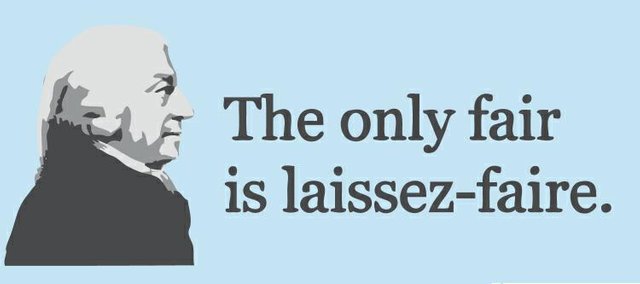
Limited Government. To ensure rights, people frame governments. Be that as it may, government is an unsafe foundation. Libertarians have an awesome hostility to concentrated power, for as Lord Acton stated, "Power has a tendency to degenerate and outright power adulterates totally." Thus they need to partition and breaking point control, and that implies particularly to confine government, for the most part through a composed constitution counting and restricting the forces that the general population delegate to government. Constrained government is the essential political ramifications of libertarianism, and libertarians point to the authentic reality that it was the scattering of energy in Europe — more than different parts of the world — that prompted singular freedom and maintained monetary development.

Free Markets. To survive and to thrive, people need to take part in financial action. The privilege to property involves the privilege to trade property by shared understanding. Free markets are the monetary arrangement of free people, and they are important to make riches. Libertarians trust that individuals will be both more liberated and more prosperous if government intercession in individuals' financial decisions is limited.

The Virtue of Production. A significant part of the impulse for libertarianism in the seventeenth century was a response against rulers and privileged people who lived off the profitable work of other individuals. Libertarians guarded the privilege of individuals to keep the their rewards for so much hard work. This exertion formed into a regard for the poise of work and creation and particularly for the developing white collar class, who were looked downward on by privileged people. Libertarians built up a pre-Marxist class examination that partitioned society into two essential classes: the individuals who created riches and the individuals who took it by compel from others. Thomas Paine, for example, expressed, "There are two unmistakable classes of men in the country, the individuals who pay charges, and the individuals who get and live upon the expenses." Similarly, Jefferson wrote in 1824, "We have more hardware of government than is fundamental, an excessive number of parasites living on the work of the innovative." Modern libertarians protect the privilege of gainful individuals to keep what they win, against another class of lawmakers and civil servants who might grab their income to exchange them to nonproducers.
Natural Harmony of Interests. Libertarians trust that there is a characteristic amicability of interests among tranquil, gainful individuals in an equitable society. One's individual designs — which may include landing a position, beginning a business, purchasing a house, et cetera — may strife with the plans of others, so the market rolls out a large number of us improvement our plans. Yet, we as a whole flourish from the operation of the free market, and there are no vital clashes amongst ranchers and vendors, makers and merchants. Just when government starts to pass out prizes on the premise of political weight do we get ourselves associated with amass strife, pushed to arrange and fight with different gatherings for a bit of political power.

Peace. Libertarians have dependably struggled the well established scourge of war. They comprehended that war expedited demise and annihilation a terrific scale, upset family and financial life, and put more power in the hands of the decision class — which may clarify why the rulers did not generally share the prevalent feeling for peace. Free men and ladies, obviously, have regularly needed to shield their own particular social orders against remote dangers; however all through history, war has for the most part been the basic adversary of serene, profitable individuals on all sides of the contention.



